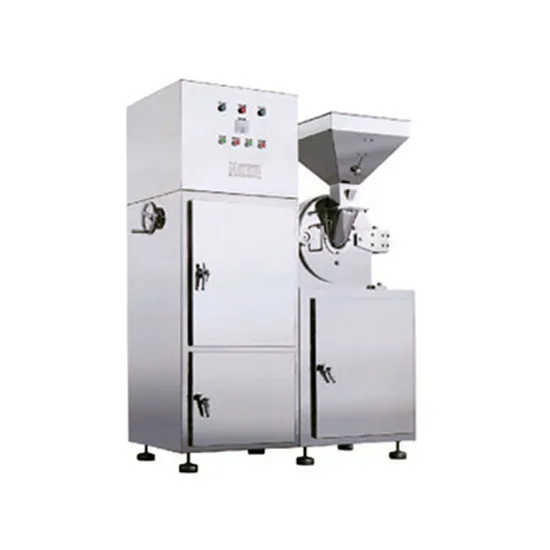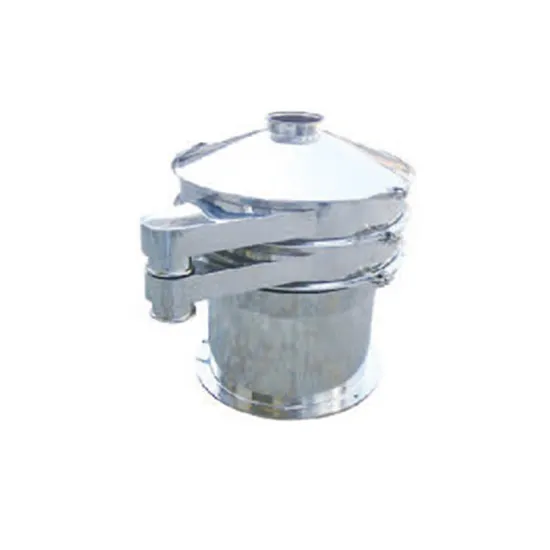NEWS
Screening in Manufacturing and Processing Machinery: An Essential Process for Sorting and Separation
Sep 21,2023
Introduction:
Screening plays a pivotal role in the realm of manufacturing and processing machinery, particularly within the domain of crushing and sorting machines. This article delves into the significance of screening in this industry, shedding light on its purpose, methods, and overall importance. By understanding the fundamentals of screening, professionals in this sector can enhance efficiency and precision in their operations.
1. The Purpose of Screening:
Screening refers to the process of separating and sorting various materials based on their size, shape, or composition. In the context of manufacturing and processing machinery, screening serves the vital purpose of ensuring that only materials with the desired specifications proceed to subsequent stages of production. By eliminating oversized or undersized particles, screening enhances product quality and consistency.
2. Methods of Screening:
In the manufacturing and processing machinery industry, several methods are employed for effective screening. The most common approach involves the utilization of vibrating screens, which consist of multiple layers of mesh screens. These screens vibrate, facilitating the separation of materials based on their size. Another method, known as trommel screening, involves the rotation of a cylindrical drum to sort materials by size as they pass through different apertures along the length of the drum.
3. Importance of Screening:
The importance of screening in the manufacturing and processing machinery industry cannot be overstated. By accurately separating materials based on size, screening helps optimize the performance of subsequent machines in the production line. This leads to increased productivity, reduced downtime, and enhanced overall efficiency. Additionally, screening aids in the removal of impurities, ensuring the final products meet the required standards.
4. Advancements in Screening Technology:
With the advancement of technology, screening in the manufacturing and processing machinery industry has witnessed significant improvements. Automated screening processes, integrated with sophisticated sensors and software, enable real-time monitoring and adjustment of screening parameters. This ensures optimal performance, minimizes errors, and maximizes output. Furthermore, the development of finer mesh screens and innovative screen designs has enhanced accuracy and efficiency in the screening process.
Conclusion:
Screening holds immense importance in the manufacturing and processing machinery industry, specifically in the field of crushing and sorting machines. By effectively separating materials based on size, screening ensures product quality, improves efficiency, and reduces downtime. Professionals in this sector must stay updated with the latest advancements in screening technology to harness its full potential and optimize their operations.
Screening plays a pivotal role in the realm of manufacturing and processing machinery, particularly within the domain of crushing and sorting machines. This article delves into the significance of screening in this industry, shedding light on its purpose, methods, and overall importance. By understanding the fundamentals of screening, professionals in this sector can enhance efficiency and precision in their operations.
1. The Purpose of Screening:
Screening refers to the process of separating and sorting various materials based on their size, shape, or composition. In the context of manufacturing and processing machinery, screening serves the vital purpose of ensuring that only materials with the desired specifications proceed to subsequent stages of production. By eliminating oversized or undersized particles, screening enhances product quality and consistency.
2. Methods of Screening:
In the manufacturing and processing machinery industry, several methods are employed for effective screening. The most common approach involves the utilization of vibrating screens, which consist of multiple layers of mesh screens. These screens vibrate, facilitating the separation of materials based on their size. Another method, known as trommel screening, involves the rotation of a cylindrical drum to sort materials by size as they pass through different apertures along the length of the drum.
3. Importance of Screening:
The importance of screening in the manufacturing and processing machinery industry cannot be overstated. By accurately separating materials based on size, screening helps optimize the performance of subsequent machines in the production line. This leads to increased productivity, reduced downtime, and enhanced overall efficiency. Additionally, screening aids in the removal of impurities, ensuring the final products meet the required standards.
4. Advancements in Screening Technology:
With the advancement of technology, screening in the manufacturing and processing machinery industry has witnessed significant improvements. Automated screening processes, integrated with sophisticated sensors and software, enable real-time monitoring and adjustment of screening parameters. This ensures optimal performance, minimizes errors, and maximizes output. Furthermore, the development of finer mesh screens and innovative screen designs has enhanced accuracy and efficiency in the screening process.
Conclusion:
Screening holds immense importance in the manufacturing and processing machinery industry, specifically in the field of crushing and sorting machines. By effectively separating materials based on size, screening ensures product quality, improves efficiency, and reduces downtime. Professionals in this sector must stay updated with the latest advancements in screening technology to harness its full potential and optimize their operations.
More News










